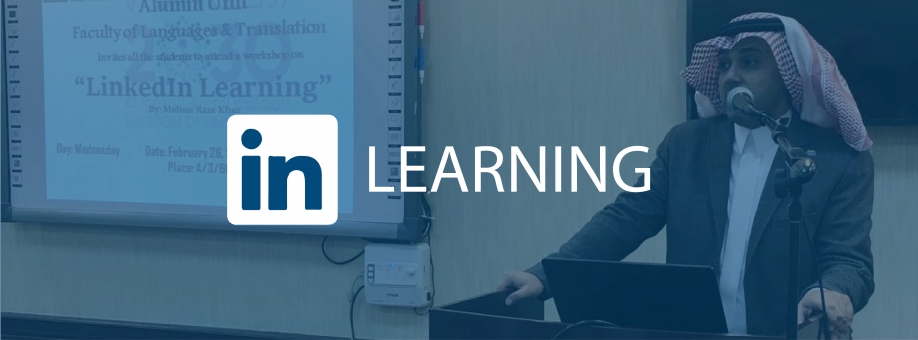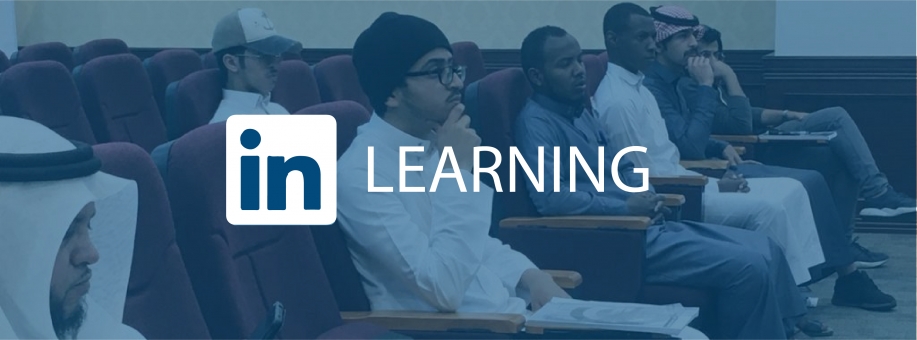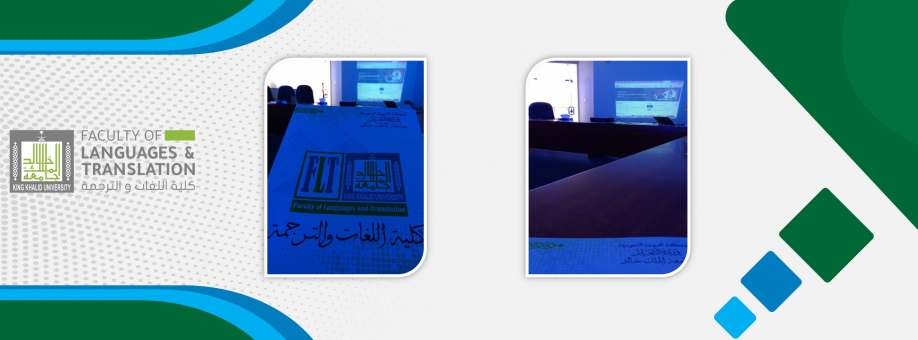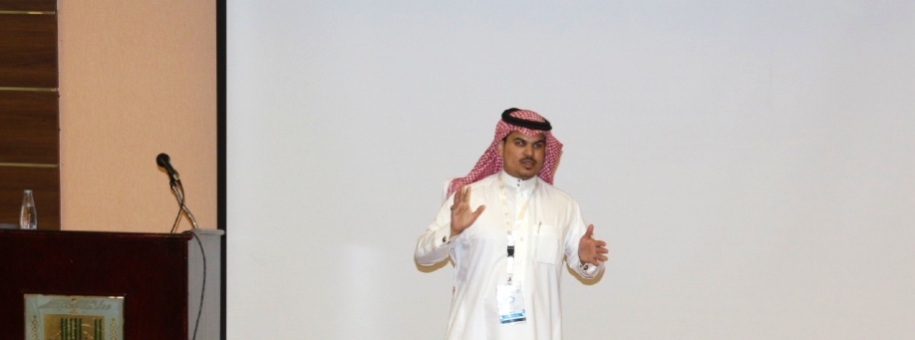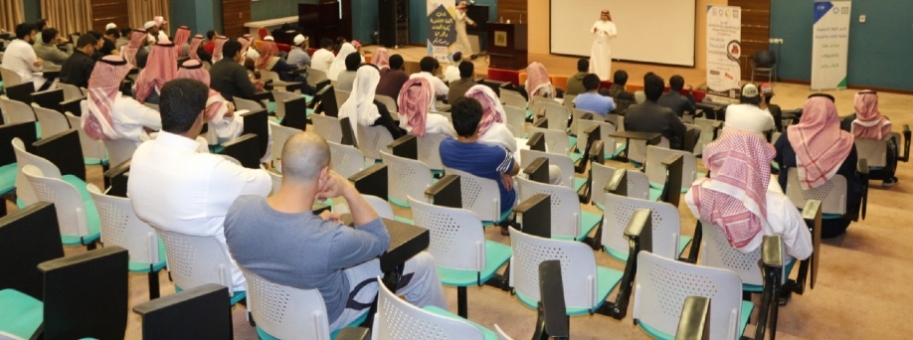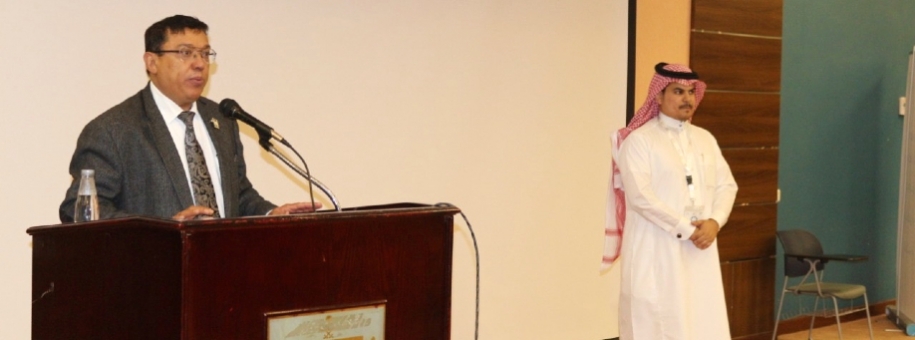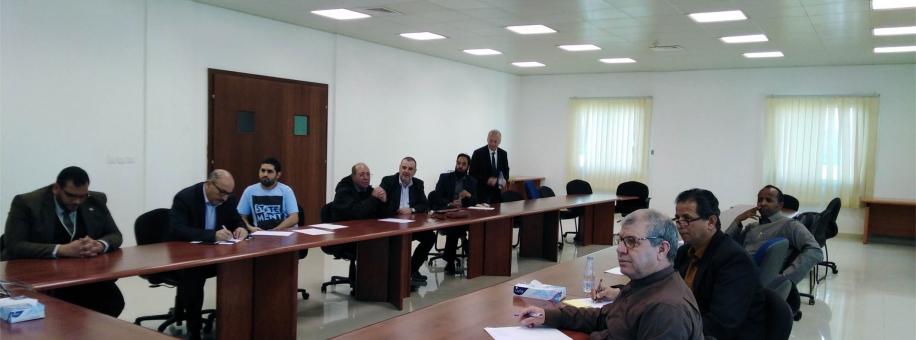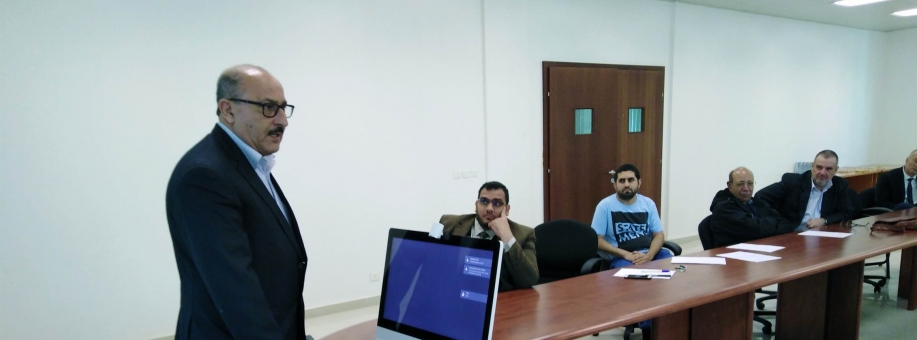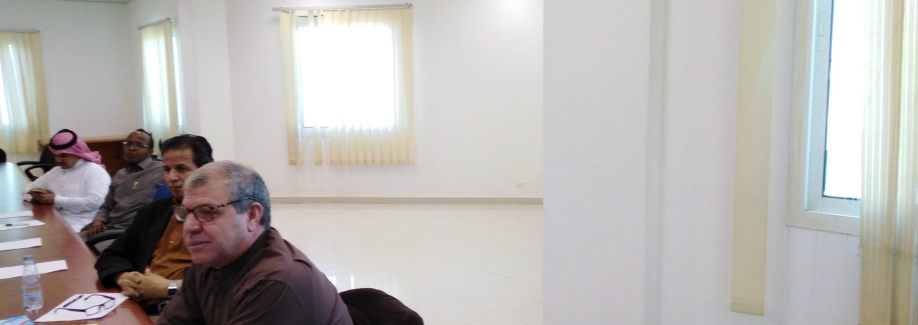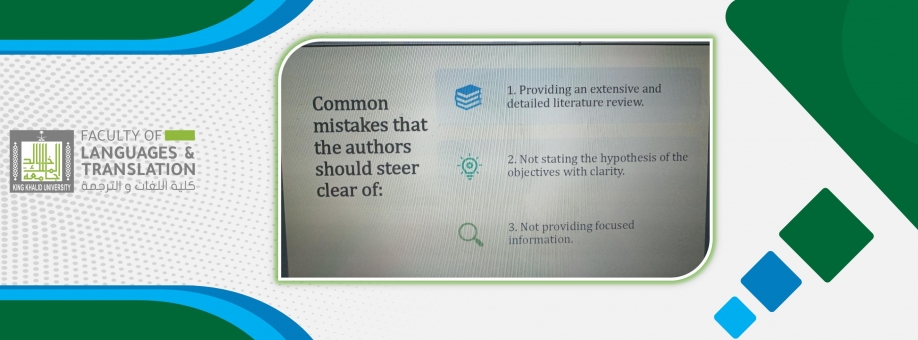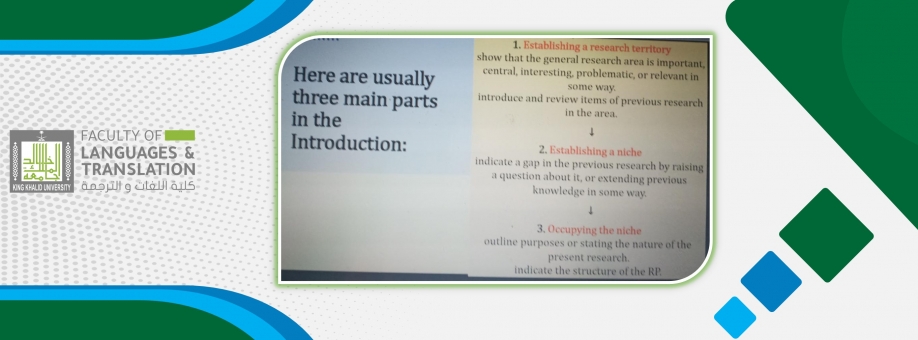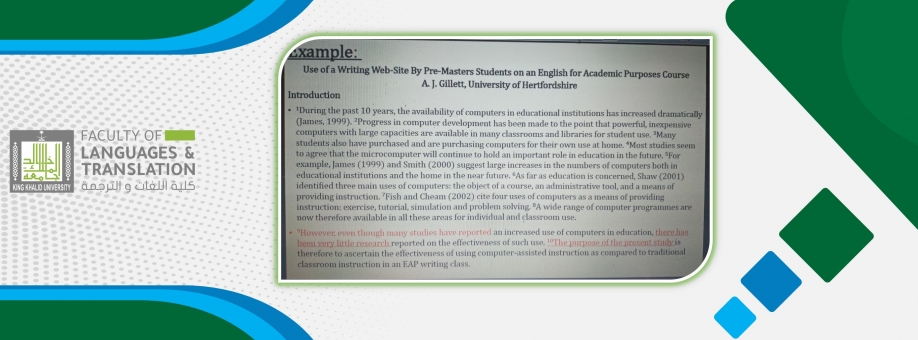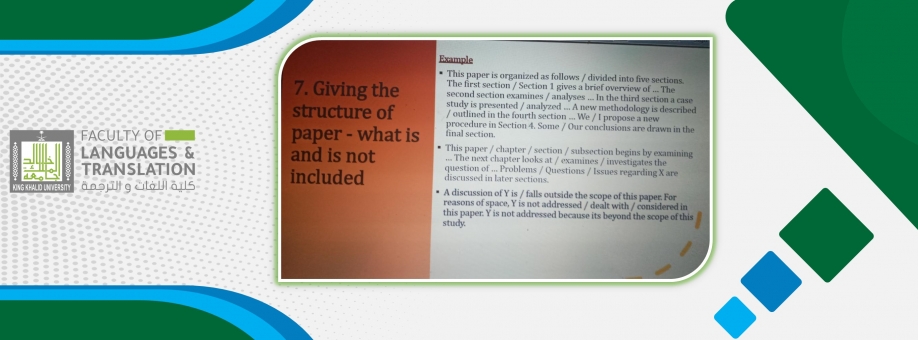LinkedIn Learning: Helping Students Land a Job or Internship
On February 26, 2020, Alumni Unit Coordinator, Mohsin Khan, delivered a workshop titled 'LinkedIn Learning'. The workshop, under the supervision of Vice Dean for Academic Development & Quality, Dr. Abdulrahman Almosa, was developed to address the main problem – lack of knowledge. Not enough students know about the availability of LinkedIn Learning, and it could be advertised to the student population more. To combat this, Mr. Khan explained that the first step is increasing awareness of how to create a LinkedIn account and how to use LinkedIn learning. Members of the FLT staff and a group of students attended the workshop.
As LinkedIn Learning now offers 13,000 online courses, Mr. Khan framed the workshop on courses of interest to our students and faculty. He started off by explaining that LinkedIn Learning is a Massive Open Online Course (MOOC) provider similar to KKUx or Coursera and that there is an option to create and save lists of courses. After showing workshop participants how to register, navigate, and access from any desktop or mobile device, Mr. Khan provided the key pointers of LinkedIn Learning as follows:
Unlimited access to video tutorials;
Personalized recommendations on the most in-demand skills based on preferences;
Helpful resources like quizzes and exercises.
Vice Dean Almosa said that both faculty and staff should take advantage of all resources available to them, explaining that the Alumni Unit at the Faculty of Languages and Translation aims to drive adoption of LinkedIn Learning as a tool for professional development, which is free of charge to Bachelor of Arts in English program students.
Mr. Khan closed out the workshop by explaining the "badging" feature. "LinkedIn Learning is connected to your LinkedIn account. I encourage you to open an account today and register for a course. Badges will be added to your profile when you complete a course. Think of the badges as credentials for your skills, which will help you find a job or internship," he concluded.
Date: 2/26/2020
Source: Faculty of Languages and Translation

